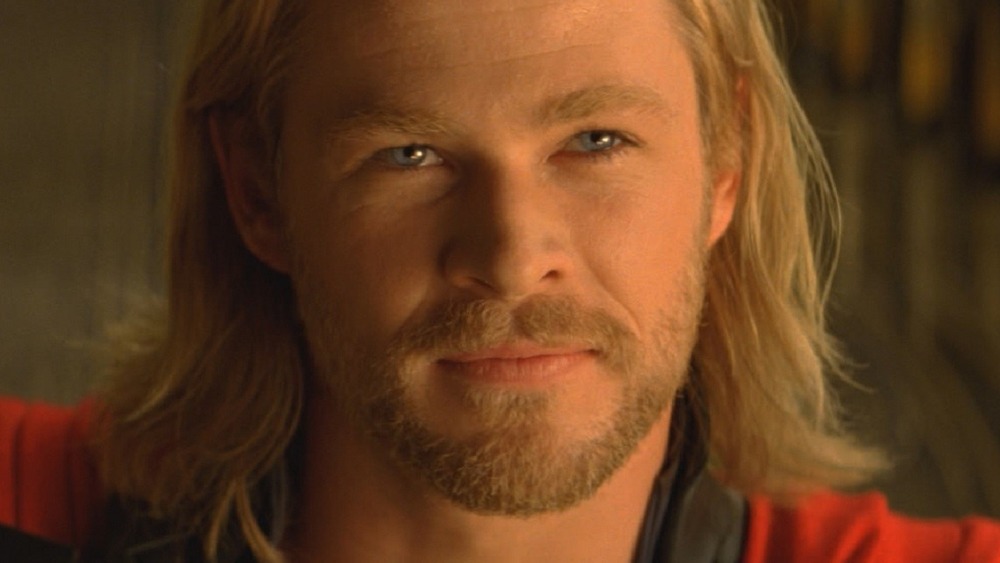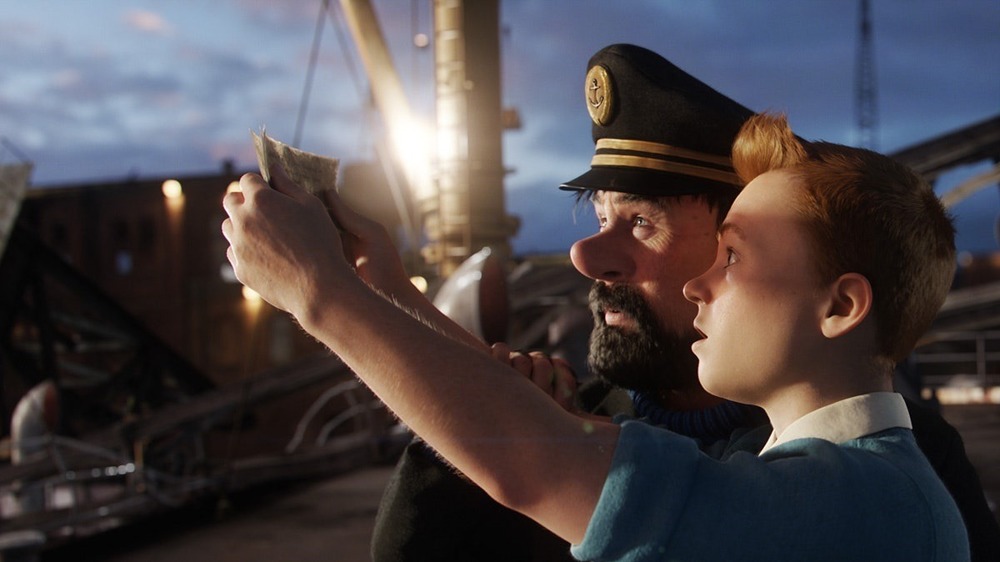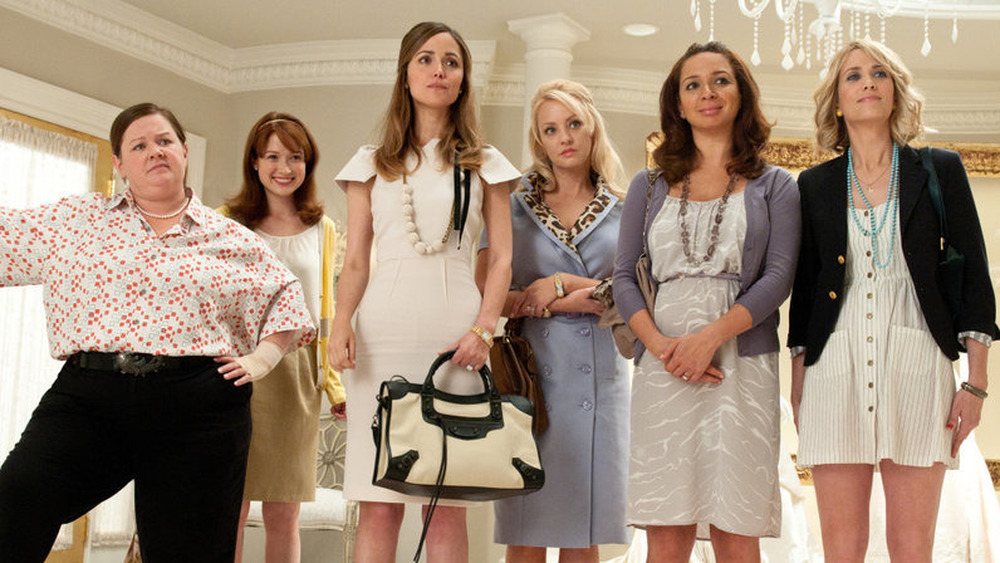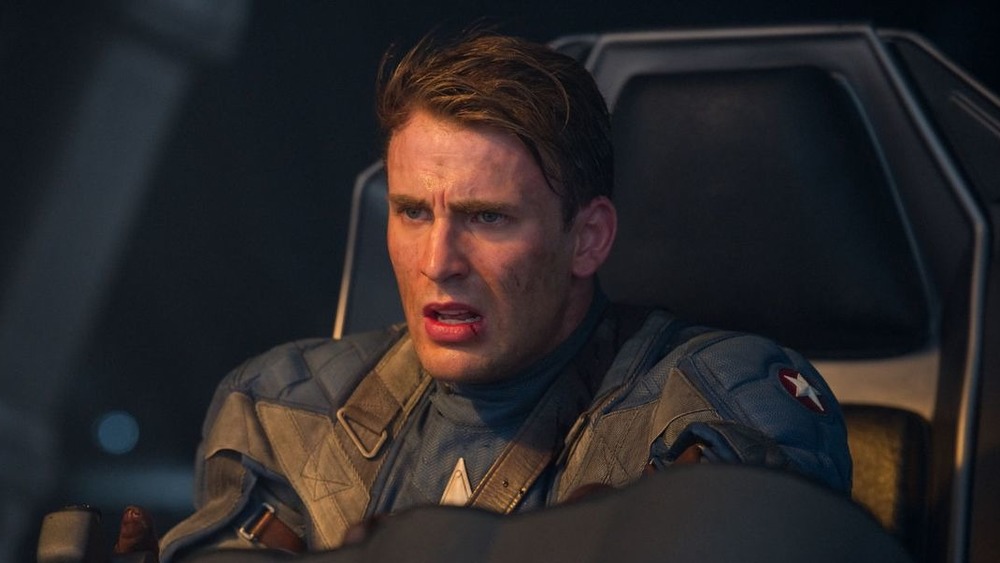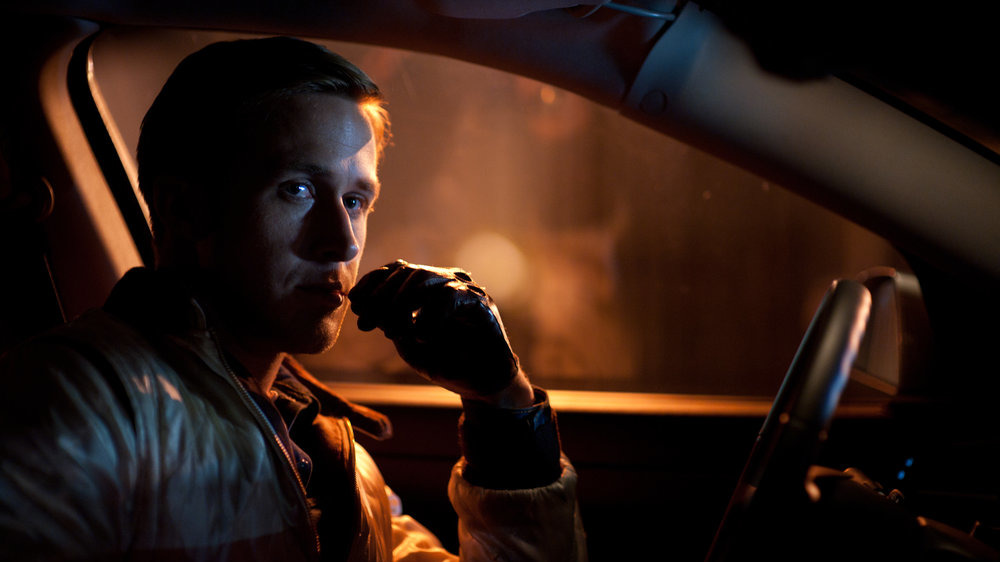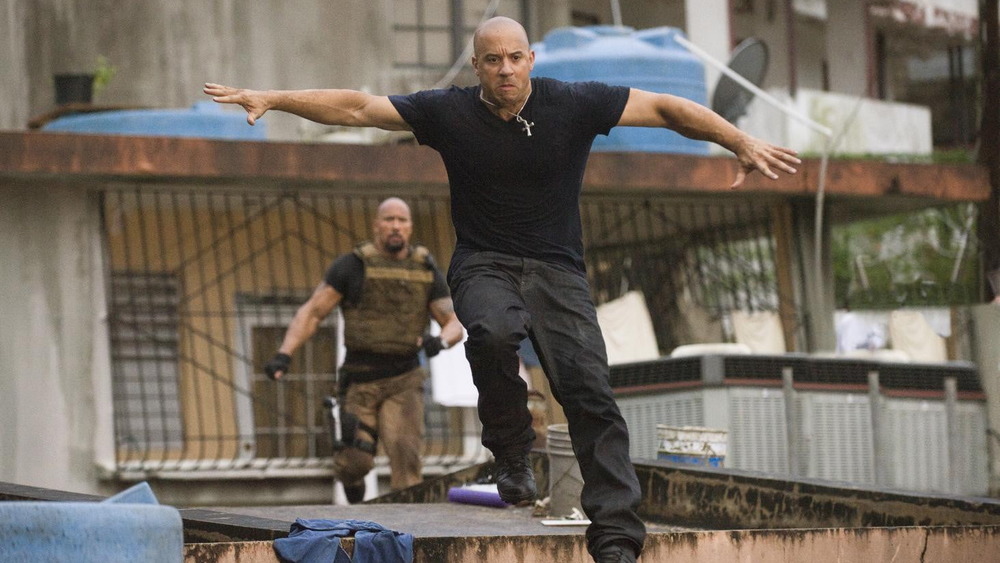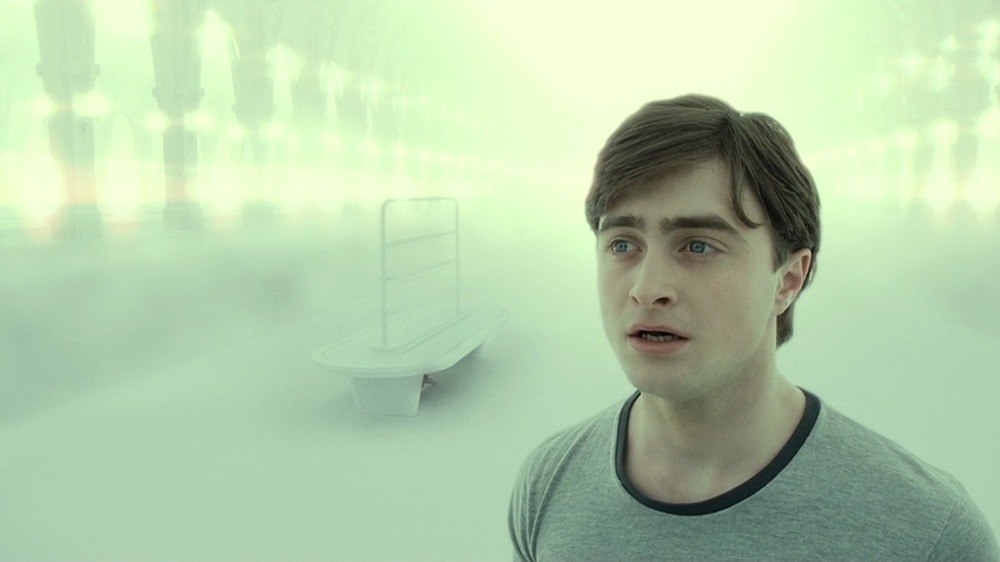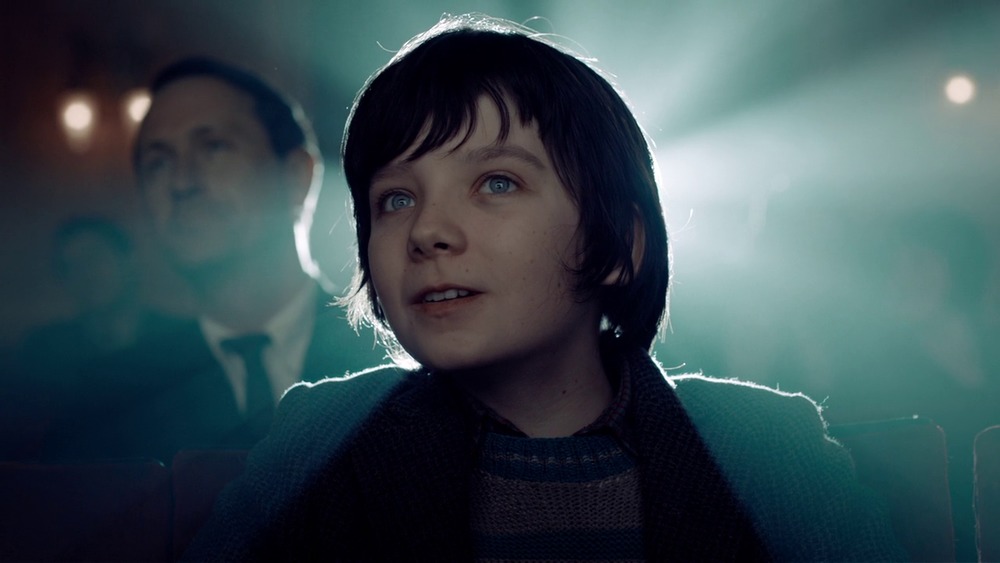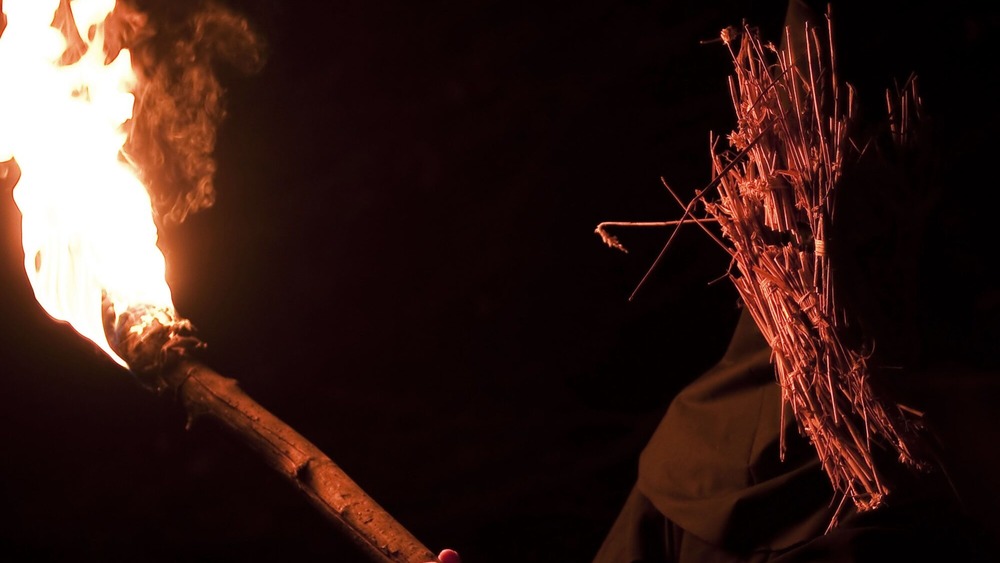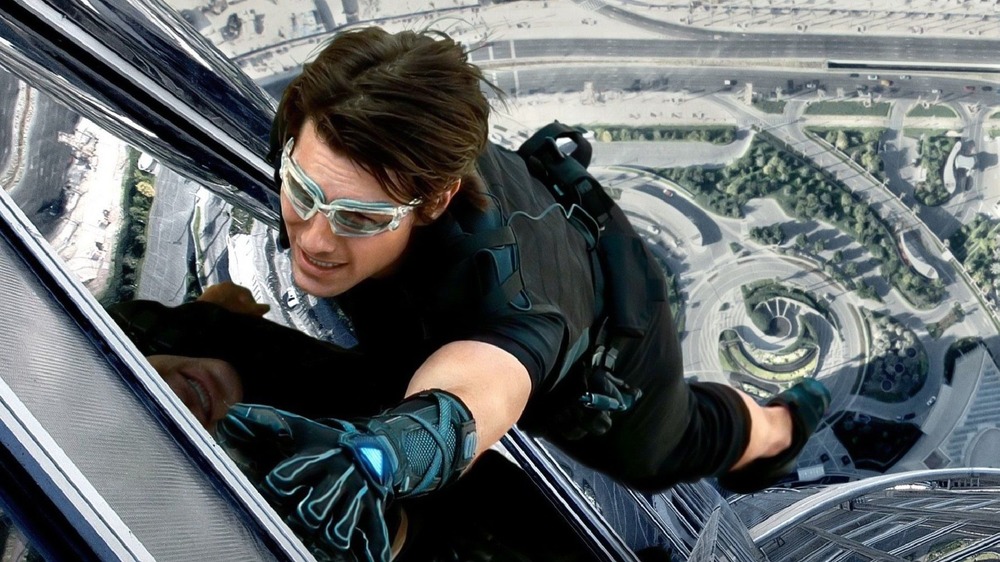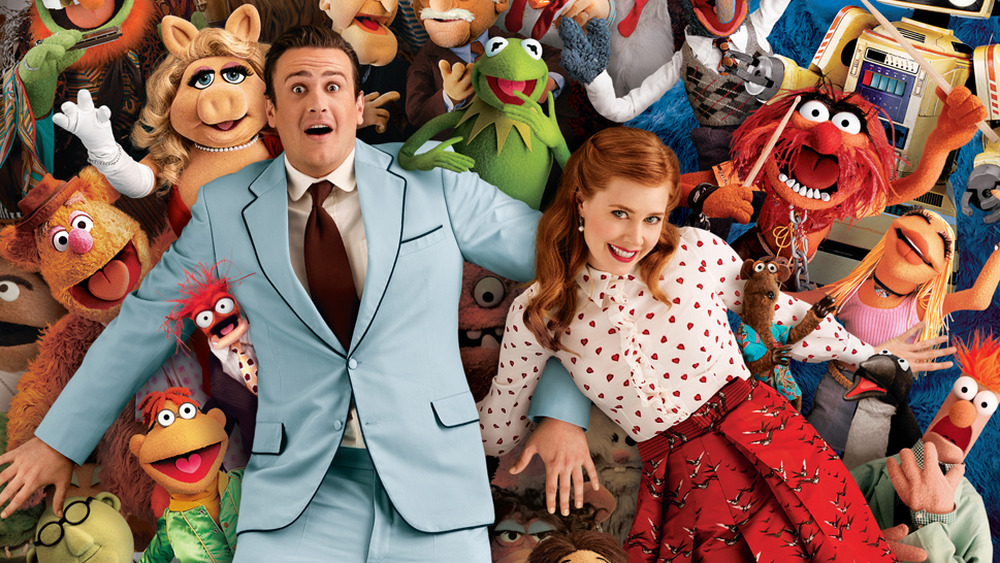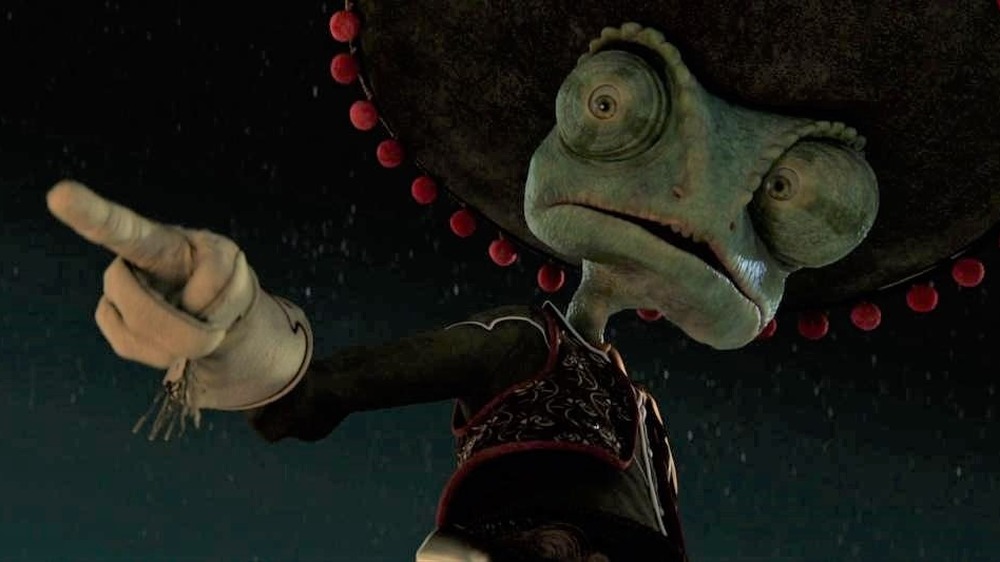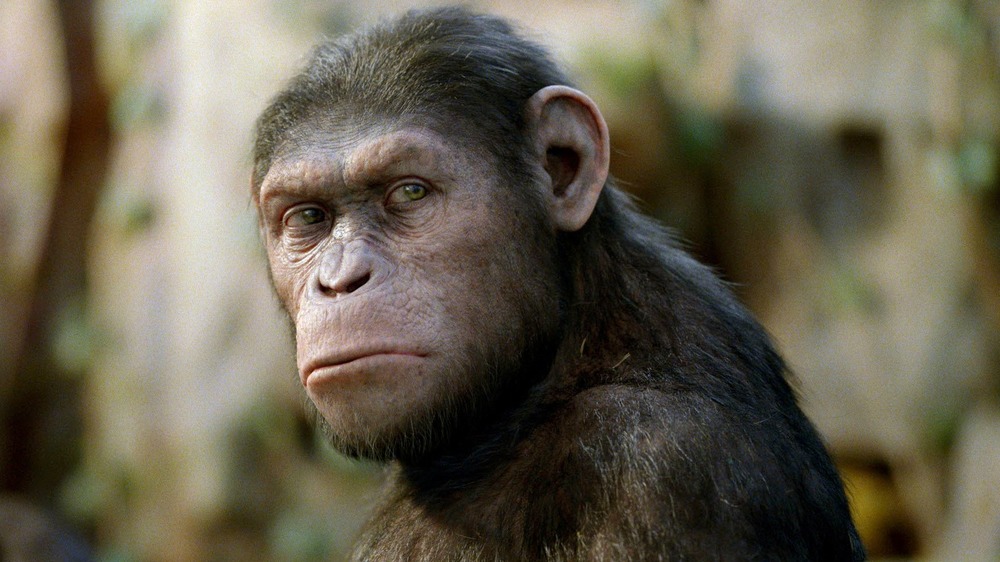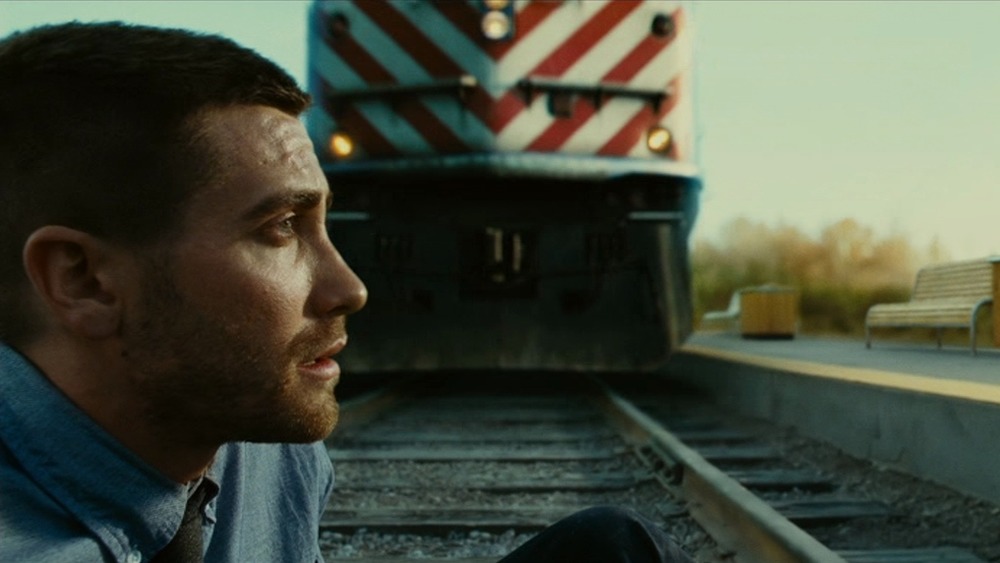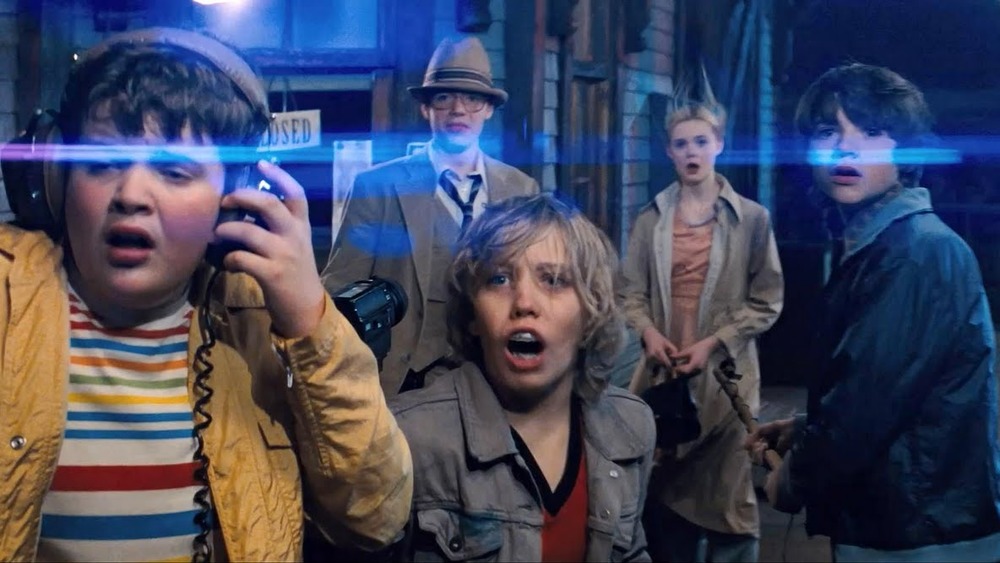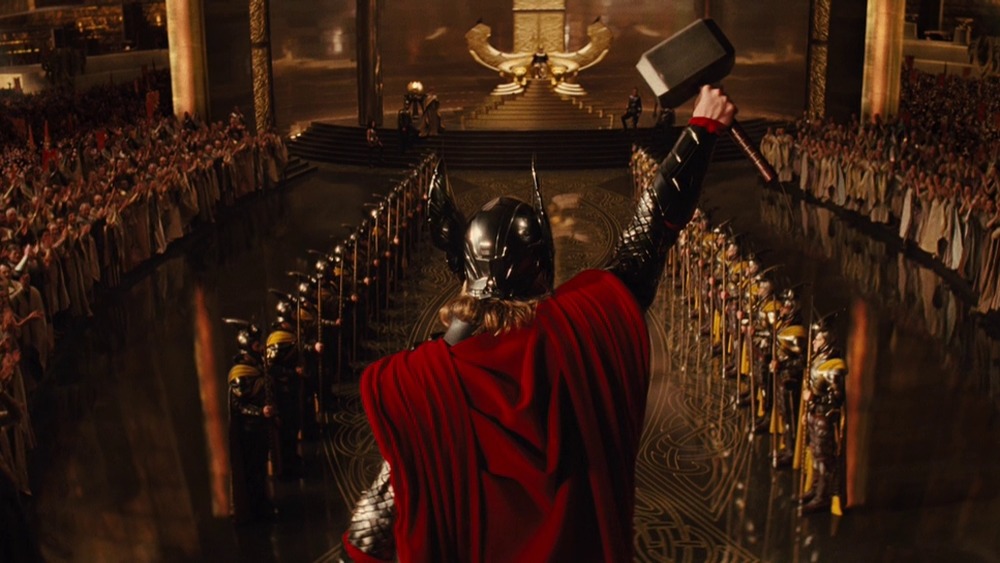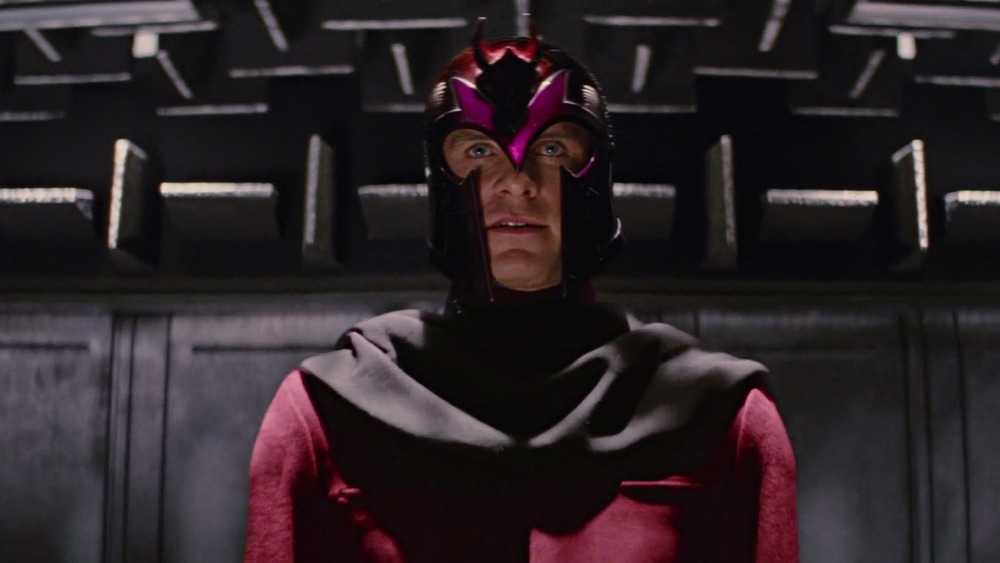Our Favorite Movies Turning Ten In 2021
It's hard to believe that it's been a whole decade since 2011. Whether or not that news makes you feel old, it's an excellent excuse to revisit an exceptional year.
Animators did amazing things with live-action, and live-action directors did jaw-dropping things with animation. The brief 3D revival reached its apex when some of the greatest filmmakers of all time showed us what movies could really do when they were liberated from the flatness of the screen. New stars rose to the top. New franchises began laying the groundwork for epics that would play out over hours and hours of film. Old franchises reached endings that were both spectacularly huge and intimately poignant. We saw filmmakers creating whole worlds of big-budget spectacle and crafting deliciously twisted takes on familiar genres on the small scale.
So today, we're celebrating these films by taking a look at the biggest and best movies turning ten in 2021.
The Adventures of Tintin is a nonstop thrill machine
If Steven Spielberg basically created the modern action movie with blockbusters like Raiders of the Lost Ark, then The Adventures of Tintin perfected the form. Based on Hergé's long-running comic series, Tintin sends the titular reporter (Jamie Bell) around the world to find three model ships that'll reveal the location of a hidden pirate treasure, and along the way, he's helped by his faithful dog, Snowy, and the drunken Captain Haddock (Andy Serkis).
Spielberg's been making movies longer than most of us have been alive, but here, he comes at his first animated movie — and his first in 3D — with fresh eyes, finding all the potential no one else saw in the medium. Freed from the limitations of the material world, Spielberg creates one jaw-dropping scene after another — a fencing match with cranes, a flaming pirate ship seeming to fly as it catches the mast of another craft, and a chase scene that combines a flood, a tank driving a hotel through the middle of town, an airborne falcon, and a motorcycle that turns into a unicycle. And Spielberg uses 3D not just to make action pop out but to fly us through the chaos, with his virtual camera darting in and out in dizzying ways like no other movie ever has. But no matter how many dimensions you see it in, The Adventures of Tintin is a rush of imagination and adrenaline you can't afford to miss.
Ten years later, Bridesmaids will make you laugh yourself sick
Hollywood's conception of the "blockbuster" has gotten really narrow in the past decade, and Bridesmaids may represent the end of an era for the culture-conquering studio comedy. If so, what a way to go out. Bridesmaids proves that laughs are the best and cheapest special effect there is.
Kristen Wiig stars as Annie, who's hit rock bottom and hopes her friend Lillian's (Maya Rudolph) wedding will drag her back to reality ... until she finds out she'll be competing for the maid of honor spot with Helen (Rose Byrne), who's every bit as superhumanly together as Annie is falling apart. As much as Wiig carries the movie, we can't forget the ensemble cast, including a charming Chris O'Dowd as the love interest, the wonderfully innocent of Ellie Kemper, the equally wonderful cynicism of Wendi Mclendon-Covey, and, of course, Melissa McCarthy. She's so hilarious that she even managed to bulldoze her way through the Academy's bias against comedy to a Best Supporting Actress nomination.
Captain America: The First Avenger introduced an action icon
The last decade has belonged to Marvel Studios, but it couldn't have gotten this far if it hadn't started so strong.
Captain America: The First Avenger introduces Chris Evans as Steve Rogers, a scrawny New Yorker who's determined to fight the Nazis, no matter what. He gets his chance when Dr. Erskine (Stanley Tucci) picks him as a potential test subject for his super soldier serum. He'll need it to take out Erskine's first subject, the Red Skull (Hugo Weaving), who's only become more powerful after discovering the space-warping Tesseract.
Captain America shows Marvel's interconnected storytelling at its best, tying the Tesseract into the mythology of Thor from earlier that year and finding a major role for Iron Man's father, Howard Stark (Dominic Cooper). But what really sells the movie is Chris Evans' performance. Audiences today are way more cynical than they were when Captain America debuted in the comics back in 1941, but Evans puts in the work to make us believe in Cap and all his innate goodness.
Drive created an atmosphere that we're still living in
We saw a lot of big-budget blockbusters in 2011, but the most quietly influential of them all may have been a little crime thriller from a Danish director. Fans don't eat, they don't sleep. All they do is think of Drive.
Directed by Nicolas Winding Refn, Drive is a beautiful yet brutal love story, and its soundtrack almost single-handedly launched a dream pop revival. On top of that, its neon-drenched atmosphere has been copied endlessly, and Ryan Gosling defined an entire generation's idea of cool as the nameless Driver. Despite its car chase-heavy trailer, Drive is a quiet, thoughtful movie, but its long scenes of cruising through Los Angeles at the golden hour are just as mesmerizing as any scenes of stuff blowing up. And when the tranquility finally does explode into violence, it's of the most deeply disturbing kind.
Fast Five kicked a long-running franchise into a whole new gear
The Fast and Furious movies had already been chugging along for a decade without getting too much attention (or at least not too much positive attention) before Fast Five reached a whole other level, building one of the most devoted fanbases in the movie world. These movies had never worried too much about plausibility or common sense, but Fast Five's innovation wasn't just embracing the silliness but dialing it up to 11, all with a straight face and excellent craft.
And it did that by going to director Justin Lin and Dwayne "The Rock" Johnson, who joined the cast as Luke Hobbs, the fed assigned to take down Dom Toretto's (Vin Diesel) band of outlaws. When we learned F9 would take the crew to space, many fans agreed it was inevitable. But they never would've gone down that road if Lin hadn't laid it down here.
Ten years ago, The Deathly Hallows - Part 2 gave fans the perfect ending
Ten years after the Harry Potter movie series began with the delightful Sorcerer's Stone, it ended here, with a grim, grimy war movie. The genius of Deathly Hallows – Part 2 is it made this development feel not just natural but inevitable.
By 2011, the world of Hogwarts had become incredibly meaningful to a generation of moviegoers, and director David Yates and screenwriter Steve Kloves stuck the landing in one of the few true movie events of the decade. Deathly Hallows – Part 2 is a poignant send-off in the rubble of the castle that had become home to millions of viewers, and it's sometimes downright heartbreaking, especially when we see Professor Snape's (Alan Rickman) final memories of lost love. Even the controversial epilogue hits just the right note, ending where we began at Platform 9 ¾, with a new generation of students leaving for their first year of school, full of possibility.
Hugo made movies magic
With so many great filmmakers trying their hand at children's movies, 2011 must've been a great time for young viewers to discover the magic of film. And none of them were as likely to hook kids for life as Hugo. After all, it made a case for the magic of the movies with its story of a young orphan (Asa Butterfield) rescuing a master of silent filmmaking (Ben Kingsley) from obscurity and despair. And director Martin Scorsese delighted everyone with one of the most truly magical feats of filmmaking the new millennium has yet produced, turning 1930s Paris into a wonderland of gold and jewel-like colors.
Plus, Scorsese embraced the magical possibilities of 3D better than any other filmmaker, making it seem like there really was a whole world behind the screen and forgoing the usual "comin'-atcha!" gimmicks for subtly startling moments, like one where Sacha Baron Cohen's menacing station inspector seemed to literally loom over the audience. But if you weren't lucky enough to see it in the theater, there's still plenty of magic waiting for you when you pop this classic on at home.
Even in 2021, Kill List will leave you haunted
So many horror movies kill the scares with endless exposition and complex mythologies. Kill List knows the best way to scare an audience is to keep them in the dark. This movie is full of mysteries that are all the more haunting because they stay unsolved. Director Ben Wheatley doesn't take much interest in jump scares because he's doing something much more difficult — sustaining an upsettingly unsettling mood and building it to the scale of sheer terror.
You have to stick with Kill List for a while, but you won't be sorry. At first, it seems to be an ordinary domestic drama about a couple's money troubles, then a twisty crime thriller as Jay (Neil Maskell) partners with his friend, Gal (Michael Smiley), to carry out the mysterious "kill list." But throughout the film, there's the sense that something is indefinably off, bubbling over into increasingly harrowing outbursts of violence before it all descends into full-on folk horror.
Watch closely, and you'll see the subtle ways Wheatley keeps you off balance. Composer Jim Williams inserts a maddening, ominous drone that makes even a scene of two parents playing with their son horrifying (twice as much the second time you watch it). And to top it all off, the movie closes with one of the best — and most disturbing — endings in horror history.
Mission Impossible: Ghost Protocol piles on iconic action scenes
With The Incredibles, Brad Bird proved you could create a killer action set piece in animation. With Mission Impossible: Rogue Nation, he proved he could do the same with live actors, including the classic sequence where Tom Cruise climbs the world's tallest building in Dubai.
In the fourth entry in the beloved spy series, a "nuclear extremist" has stolen Russia's nuclear codes with plans to restart society in the rubble of an atomic war, has bombed the Kremlin, and framed Ethan Hunt (Cruise) for it. Hunt escapes custody but finds his agency disbanded in the controversy, leaving him just a skeleton crew and a van's worth of glitchy gadgets to save the world. As you can guess from the plot, it blends incredible, modern-day action with the style of classic spy thrillers of the '60s. It may even beat the oldsters at their own game.
The Muppets put our favorite puppets back in the spotlight
In 2011, the Muppets needed a hit. Most of the original cast was dead or retired, and it'd been over a decade since their last big-screen appearance. How do you rehabilitate a franchise that's in such a sad place? If you're writers Jason Segel and Nicholas Stoller or director James Bobin, you make a movie about it.
Diehard Muppet fans Gary (Segel) and Walter (Peter Linz) finally get to see their heroes' studio but find it's abandoned and in danger of being torn down by a shady oil tycoon (Chris Cooper). And like any good musical heroes, they get the band back together to save the theater. That means a trip around the world to find all the strange places the Muppets have ended up. But like the best Muppet projects, there's a heart under all the wackiness, and Kermit and company's separation and fear they've been forgotten are that much more powerful for the real-life subtext.
Rango is a weirdo masterpiece that's turning ten
Hollywood animation is normally where you go for cute cartoon animals. Rango has a whole menagerie of cartoon animals on display, but they're far from cute. Most of them are downright grotesque, and they're all the more fascinating for it.
It's hard to imagine how a major studio signed off on something with so little merchandising potential, but everything about Rango's just as daring — the mythmaking and myth-debunking story, the psychedelic interludes, the antiauthoritarian attitude, and the intricate, dictionary-plundering dialogue. Johnny Depp stars as one of animation's unlikeliest heroes, a pet chameleon who fancies himself an actor. He adopts the name "Rango" when he falls out of the family car and into Dirt, a makeshift village of toads, rats, and even stranger critters. He also adopts the role of a gun-slinging cowboy sheriff and gets to work solving the mystery of the town's water shortage.
Pirates of the Caribbean director Gore Verbinski followed that franchise's increasingly CGI-heavy trajectory into full-on animation here, and it works beautifully, thanks in no small part to his Pirates design partner, "Crash" McCreery. Verbinski also reteamed with actor Bill Nighy, whose performance as the gargantuan Rattlesnake Jake leaps out ahead of his own Davy Jones into the ranks of the all-time great movie villains.
Ten years ago, we witnessed the Rise of the Planet of the Apes
With Hollywood so focused on retelling existing stories, how can filmmakers create anything new? Rise of the Planet of the Apes proves it's possible to create a unique, original tale out of a franchise like Planet of the Apes that's still in keeping with the series' themes and bleak outlook. Rise takes the franchise from the distant future to the day after tomorrow, as scientist Will Rodman's (James Franco) attempts to treat Alzheimer's instead lead to the birth of Caesar (Andy Serkis), an ape with all the intelligence of a human being ... and maybe more than most.
The focus here is on Caesar's character, and Serkis makes him more real and complex than most human protagonists. And while Avatar and the Marvel Cinematic Universe prove sci-fi movies don't have to be grounded to be good, the climax of Rise gets an extra charge from its careful fidelity to the reality of San Francisco, making an idea as outlandish as an armed ape uprising frighteningly plausible.
Source Code will twist your brain
In Source Code, Air Force pilot Colter Stevens (Jake Gyllenhaal) wakes up on a train in the middle of a conversation with a woman named Christina (Michelle Monaghan), who seems to know him even though he's never met her. Stranger still, Stevens sees someone else's face in the mirror. Then the train blows up, and he discovers he's part of a military experiment to enter the memories of a bombing victims to discover the perpetrator's identity.
And those are just the first few twists in a movie that pulls them out faster than a slot machine spits out coins. Meanwhile, Gyllenhaal's character continues reliving the dying man's last eight minutes like a high-stakes Groundhog Day. But eventually, the mission becomes less important than Colter's growing relationship with Christina, both to Colter, to the audience, and as we discover in one last twist, to the entire world.
Super 8 turns movie memories into a modern classic
In a small town in the '70s, a boy named Joe (Joel Courtney) finds relief from the loss of his mother by shooting Super 8 movies with a group of friends. Then one night, they record a train crash that turns out to be even more significant than they realize as strange events begin taking place all over town.
Older viewers may recognize this as the kind of movie Steven Spielberg (who started his own career as a kid shooting Super 8 movies) used to make, as a director (E.T.) or producer (Gremlins and The Goonies). While Spielberg himself was staking out new territory, Lost co-creator and future Star Wars director J.J. Abrams was looking back at his mentor's past. But Super 8 becomes a lot more than just a copycat exercise because Abrams doesn't just recreate the surface style. He remembers how much attention Spielberg's best movies pay to their characters, their pain, and the seemingly insignificant details of their everyday lives.
After taking viewers to a new world, Thor is turning ten years old
"Gritty" and "grounded" were the operative words for superhero movies for most of the '00s, but Marvel Studios proved their commitment to diving headfirst into comic book cosmology with the launch of the Thor franchise.
Even though most of the action cost-effectively strands Thor (Chris Hemsworth) on Earth, Shakespearean director Kenneth Branagh still gives us a good, long look at the stunning science-fantasy worlds of Asgard and Jotunheim. Most directors would dismiss comic creator Jack Kirby and Walt Simonson's ornately impractical designs as "too much." But as anyone who's seen his four-hour, all-star adaptation of Hamlet knows, Kenneth Branagh doesn't believe there's any such thing as "too much." So we get to see Loki (Tom Hiddleston) in his full neck-straining helmet with horns four times the size of his head and Idris Elba decked out in golden armor as Heimdall.
X-Men: First Class combined new-school action and old-school cool
The year 2011 offered a lot of possibilities for the future of the superhero genre, but X-Men: First Class found the most exciting one of all by looking to the past. And strange as it is to say about a movie that starts in Auschwitz, it's about as much fun as you could possibly have at the movies.
First Class's '60s-set origin story oozes retro cool from every frame, from the envy-inspiring fashions and the golden oldies soundtrack to the classic Cold War spy plot and the psychedelic reinterpretation of villain Sebastian Shaw's (Kevin Bacon) powers. The period setting cuts out most of the cast of the past X-Men movies, but fortunately, the younger, hotter versions of Professor Xavier (James McAvoy), Mystique (Jennifer Lawrence), and Nazi-hunting Magneto (Michael Fassbender) turn out to be at least as interesting as Wolverine (who makes an unforgettable cameo) and friends.
